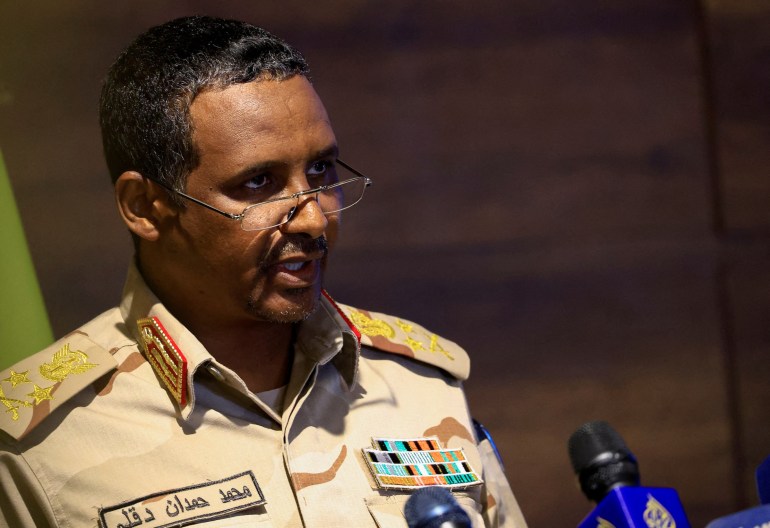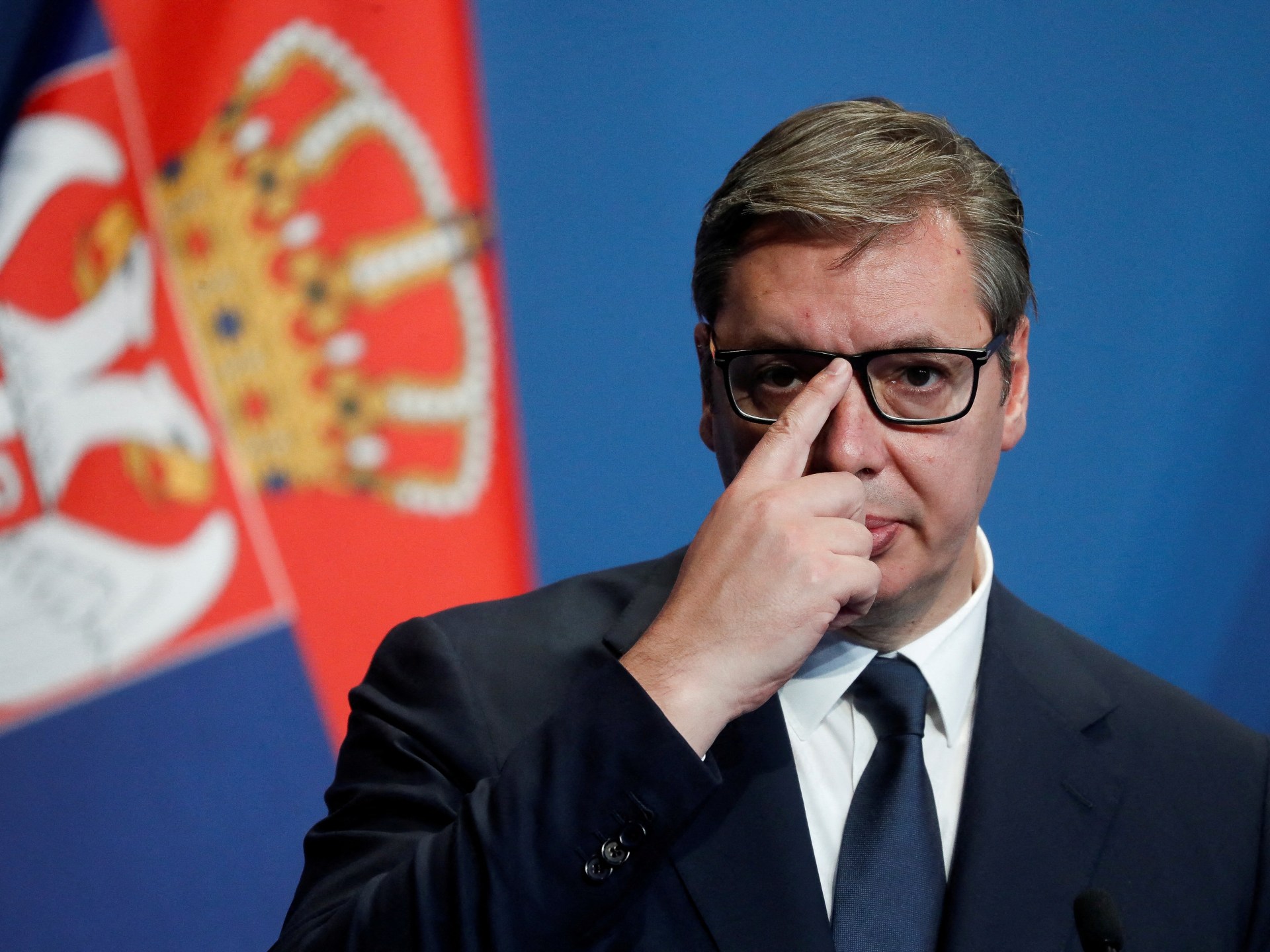Sudan’s military leader Burhan backs democratic transition | Omar al-Bashir News
General Abdel Fattah al-Burhan reiterates that the army will be brought under a civilian-led government as talks on military reforms began on Sunday.
Sudan’s military leader General Abdel Fattah al-Burhan has reiterated that the army will be brought under a new civilian-led government as talks on military reforms began on Sunday as part of a prolonged transition to civilian rule.
“During our history, the armed forces have supported dictatorial governments, and we want to put an end to that,” al-Burhan, a career soldier during former President Omar al-Bashir’s three-decade rule, said in a speech to soldiers on Sunday.
Al-Burhan seized power in the 2021 coup that derailed a short-lived democratic transition following the 2019 ouster of al-Bashir.
The military and political parties signed a deal in December that called for a civilian-led transition government that would oversee elections in two years. However, pro-democracy protest groups opposed the deal, demanding the inclusion of transitional justice and security reforms.
Reform of the security forces is a key point of tension in discussions on the political process launched in December, envisaging generals’ exit from politics once a civilian government is installed.
“The process of security and military reform is a long and complicated process and one that cannot be bypassed,” al-Burhan said.
The proposed reforms include the integration into the regular army of the powerful paramilitary Rapid Support Forces (RSF), led by al-Burhan’s deputy Mohamed Hamdan Dagalo, widely known as Hemeti.
A long history of military takeovers
Sudan’s army has a long history of staging military takeovers and has amassed substantial economic holdings. It wants to see the RSF, which by some estimates has up to 100,000 fighters, integrated under its control.
Created in 2013, RSF emerged from the Popular Defence Forces – a government-backed militia known as the Janjaweed – that longtime autocratic ruler al-Bashir unleashed a decade earlier in the western region of Darfur against non-Arab rebels, where it was accused of war crimes by rights groups.

While experts have pointed to worrying rivalries between al-Burhan and Dagalo, the two men took turns speaking on Sunday in Khartoum, pleading for successful integration.
Al-Burhan said his country will create a military force that will not intervene in politics and will be trusted by the Sudanese people in building a modern and democratic state.
Dagalo said he wanted “a unified army”, adding the October 2021 coup that brought al-Burhan to power had “failed” because it had not brought change but rather the return of the “old regime” of al-Bashir loyalists.
Integrating the RSF and placing the military under civilian authority are central demands of civilian groups that helped overthrow al-Bashir four years ago and shared power with the military until the 2021 coup.
The December deal came after near-weekly protests since al-Burhan’s October 2021 takeover, which had also triggered international aid cuts and Western sanctions, adding to the deepening political and economic troubles in one of the world’s poorest countries.
The demonstrations against the military and economic woes have been met by a violent crackdown, with hundreds of activists also being rounded up under emergency laws.
The military and civilian leaders are expected to formally adopt the deal on April 6 and launch a new civilian government on April 11.
The agreement had left several sensitive issues, including security reforms and transitional justice, for further discussion.




